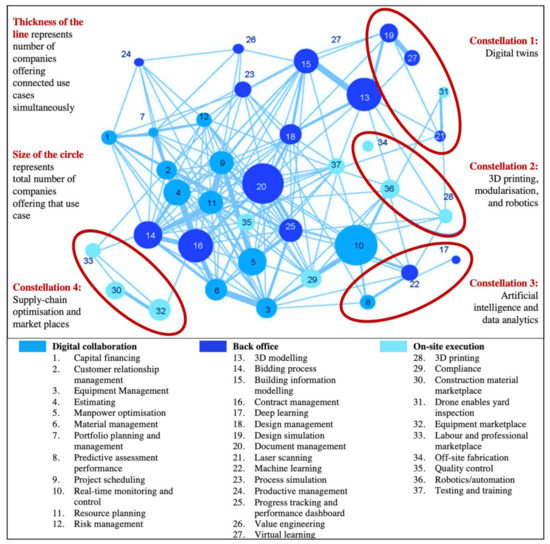“Korean Medical Imaging AI Expands Global Presence by 2025”

**Korean Medical Imaging AI Expands Global Presence by 2025**
In recent years, South Korea has emerged as a global leader in artificial intelligence (AI) applications, particularly in the field of medical imaging. With a robust healthcare infrastructure, cutting-edge technology, and strong government support, Korean medical imaging AI companies are poised to expand their global presence significantly by 2025. This growth is expected to revolutionize healthcare delivery worldwide, improving diagnostic accuracy, reducing costs, and increasing accessibility to advanced medical imaging solutions.
### The Rise of Korean Medical Imaging AI
South Korea has long been recognized for its technological innovation, and its healthcare sector is no exception. The country has invested heavily in AI research and development, with a particular focus on medical imaging. Medical imaging AI involves the use of machine learning algorithms to analyze medical images such as X-rays, CT scans, MRIs, and ultrasounds. These AI systems can detect abnormalities, assist in diagnosis, and even predict patient outcomes with remarkable accuracy.
Several Korean companies, including VUNO, Lunit, and Deep Bio, have developed state-of-the-art AI solutions for medical imaging. These companies have gained international recognition for their innovative products, which are designed to assist radiologists and clinicians in diagnosing diseases such as cancer, cardiovascular conditions, and neurological disorders. By leveraging AI, these solutions can significantly reduce the time required for diagnosis and improve the accuracy of medical assessments.
### Factors Driving Global Expansion
The global expansion of Korean medical imaging AI is being driven by several key factors:
1. **Technological Excellence**: Korean companies have developed AI algorithms that are among the most accurate and reliable in the world. These algorithms are trained on extensive datasets, ensuring high levels of precision in detecting and diagnosing medical conditions.
2. **Regulatory Approvals**: Korean medical imaging AI solutions have received regulatory approvals in multiple countries, including the United States, Europe, and Japan. For example, Lunit’s AI-powered chest X-ray analysis software has been cleared by the U.S. Food and Drug Administration (FDA), paving the way for its adoption in American hospitals and clinics.
3. **Global Partnerships**: Korean companies are forming strategic partnerships with international healthcare providers, research institutions, and technology firms. These collaborations are helping to accelerate the adoption of Korean medical imaging AI solutions in global markets.
4. **Government Support**: The South Korean government has implemented policies to support the development and export of AI technologies. Initiatives such as the “AI National Strategy” and funding programs for AI startups have created a favorable environment for innovation and international growth.
5. **Rising Demand for AI in Healthcare**: The global healthcare industry is increasingly adopting AI technologies to address challenges such as physician shortages, rising healthcare costs, and the need for early disease detection. Korean medical imaging AI solutions are well-positioned to meet this demand.
### Key Markets for Expansion
By 2025, Korean medical imaging AI companies are expected to establish a strong presence in several key markets:
– **United States**: As one of the largest healthcare markets in the world, the U.S. offers significant opportunities for Korean medical imaging AI. The FDA’s approval of Korean AI solutions has already opened doors for their integration into American healthcare systems.
– **Europe**: European countries are actively adopting AI technologies to enhance healthcare delivery. Korean companies are targeting this market by complying with the European Union’s stringent regulatory requirements and partnering with local healthcare providers.
– **Asia-Pacific**: The Asia-Pacific region, including countries like China, India, and Japan, represents a rapidly growing market for medical imaging AI. Korean companies are leveraging their geographical proximity and cultural ties to expand in this region.
– **Middle East and Africa**: Emerging markets in the Middle East and Africa are increasingly investing in advanced healthcare technologies. Korean medical imaging AI solutions offer a cost-effective way to improve diagnostic capabilities in these regions.
### Challenges and Opportunities
While the global expansion of Korean medical imaging AI presents numerous opportunities, it also comes with challenges. These include navigating complex regulatory environments, addressing data privacy concerns, and competing with established players in the global AI market. However, Korean companies are well-equipped to overcome these challenges through innovation, collaboration, and a commitment to quality.
One of the most promising opportunities lies in the integration of AI with other emerging technologies, such as telemedicine and wearable devices. By combining AI-powered medical imaging with remote healthcare solutions, Korean companies can provide comprehensive diagnostic services to underserved populations around the world.
### The Road Ahead
As we approach 2025, the global presence of Korean medical imaging AI is expected to grow exponentially. This expansion will not only benefit Korean companies but also contribute to the advancement of global healthcare. By providing accurate, efficient, and accessible diagnostic solutions, Korean medical imaging AI has the potential to save lives, reduce healthcare disparities, and transform the way medical care is delivered.
In conclusion, South Korea’s leadership in medical imaging AI is a testament to the country’s commitment to innovation and excellence. With